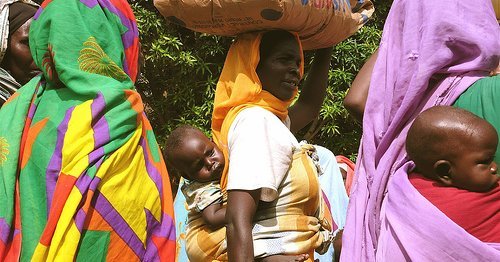The severe social problems in African countries such as Eritrea, Ethiopia, Somalia, Sudan, The Democratic Republic of Congo and Liberia coupled with the civil and political unrest in Asian and Middle-East countries such as Iraq, The Palestinian territories, and places suffering from natural disasters - like Sri Lanka - have resulted in the massive phenomenon of immigration.
Many migrants flee their respective countries in the hope of finding and securing a better future for them and for their families. The Refugee Commission, however only recognizes those migrants fleeing from war and persecution as refugees. Other applicants are rejected. The problem remains that these asylum-seekers can’t return to their home-lands and hence seek asylum in European countries.
How should Europe face this challenge?
There are actually many opinions firing about; however, one simple solution is to integrate these immigrants within the European society. Therefore, apart from solving the problem you are also giving a boost to the European economy.
We can already hear many European Nationalists protesting harshly that this would ruin the Ideal of Europe itself. Our answer to these people is simple: by integrating these immigrants within the European society tension is automatically reduced. What is the main principle of the European Union after all? Security. One can never have security without integration. Integration has succeeded between Europeans and it can also succeed with immigrants. This is an unavoidable outcome. No one can stop the flow of immigrants coming from Africa and other countries. Of course, there are means of controlling this flow and we strongly agree that it should be controlled in the best humanely way possible. However, illegal immigration is here to stay and grow, for it will surely grow in the coming years.
How can this immigration be controlled? It can be controlled by making pressure on countries like Libya – the place from where these immigrants start their journey to Europe. Immigrants must also be divided equally among all European countries. It is unfair and absurd that islands like Lampedusa and Malta are suffering the most (see case-study below). What sense does the unity of the EU have if problems are not shared? How can Europe hope to be as strong as America if it doesn’t take its example of burden-sharing between its members?
And to continue on the argument of integrating these immigrants; a simple question comes: how far will present Europeans accept this integration? Not much. It is difficult even for us, who are here hailing in favour of integration, to accept them. However, if we cannot really accept these immigrants, we can give our posterity an education so that they will learn something many Europeans still find it hard to make up with: acceptance. If the European Union does not invest in educating our future generations, Europe will head for one of its most difficult times in history. Common immigration policy must be based first and foremost on education. Europeans must think of the future of the continent and now is the time to act.
Common immigration policy must be based first and foremost on education
Prosperity, solidarity and security are the three main pillars of the European Union. These would be severely threatened if the EU members do not take a firm and decisive action regarding illegal immigration. Illegal immigration is against European stability only if Europeans choose it to be so. That is why we must take common action, strong in our belief that if we are united we will always succeed!
Case Study: Malta
The influx of immigrants coming to Malta has been burdening the Maltese government for quite a long period of time. Many of these illegal immigrants flee their countries to seek asylum in Malta. In the 1990s immigrants arriving in Malta came from former Yugoslavia and Iraq, both of which were in a state of war.
As a response, countries such as Malta take two stances. Some Maltese citizens believe in the fact that illegal immigrants should be welcome as long as jobs in Malta suffice. Others, however, fear the long-term consequences of such an influx of migrants resulting in their beliefs of putting quotas on the influx of foreigners.
Malta, being a small island in the middle of the Mediterranean, has a very limited amount of resources. Around 80% of food stuffs are imported, water levels are very low and energy resources are scarce. The total area of the Maltese Islands is only around 316 sq km hosting a population of more than 404,000. The Maltese Isalnds are the most densely populated in Europe and this is creating quite a strain on Malta’s already exhausted resources.
The increasing number of illegal immigrants coming to Malta is only making the problem worse. That is why as emphasized before there must be a system of ‘burden-sharing’ system to which all members of the European Union must contribute.


Follow the comments: |
|
